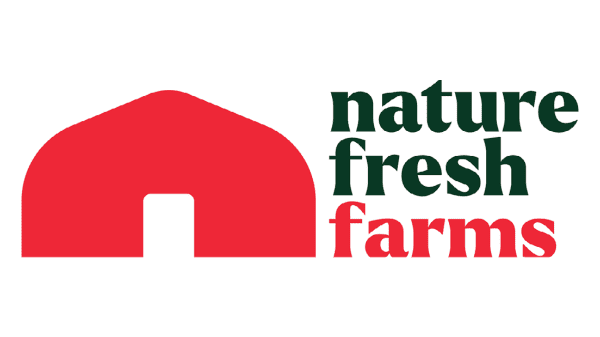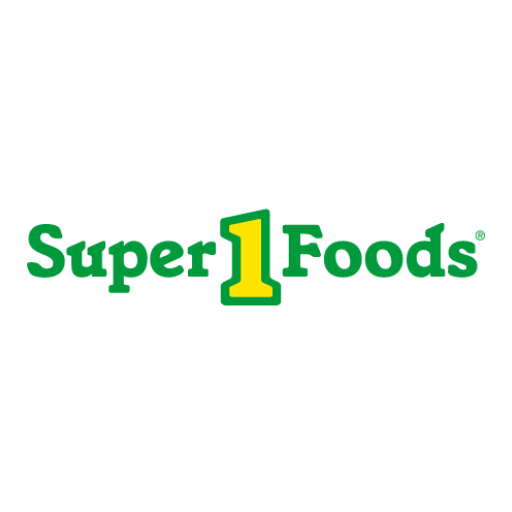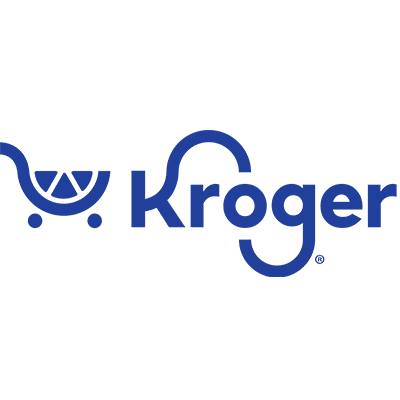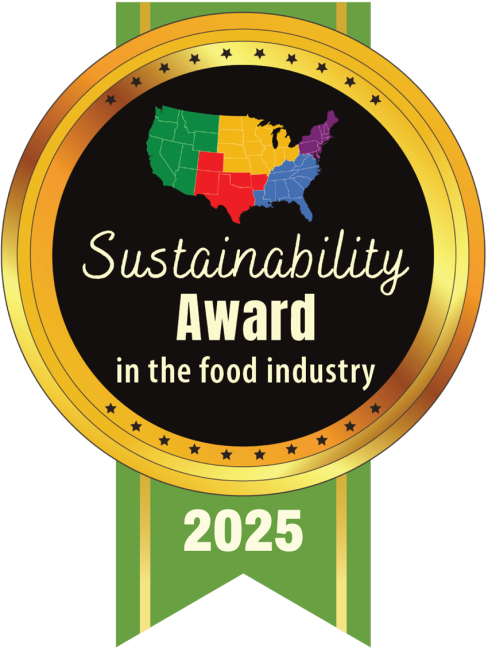The Sustainability in the Food Industry Award, presented by The Shelby Report, honors trailblazers reducing environmental impact, supporting communities, and innovating across the food supply chain. This year, we’re spotlighting nominees in four key categories: Retailer Initiatives (e.g., energy-efficient stores and waste reduction), Vendor & Supply Chain Innovations (e.g., carbon-neutral logistics), Sustainable Workforce (e.g., employee training for green practices), and Collaborative Impact & Industry Leadership (e.g., industry-wide coalitions). These forward-thinking companies and organizations are driving real change in how we grow, package, and deliver food – proving sustainability isn’t just a trend, it’s the future.
Discover this years innovators leading the charge in food industry sustainability – from farm to table.
2025 Sustainability Award Nominees
-
 2025 Sustainability in the Food Industry
2025 Sustainability in the Food IndustryNature Fresh Farms
Leamington, Ontario, Canada, Nature Fresh Farms
Read MoreNature Fresh Farms is committed to creating meaningful sustainability impacts by focusing on reducing waste, finding innovative solutions and supporting communities. One of its largest initiatives is the use of an edible waste biodigester, which has digested more than 2,300 metric tons of food waste, transforming it into energy and fertilizer.
In addition, Nature Fresh Farms is piloting new farm-level waste solutions to ensure that the food it grows continues to serve a purpose beyond its greenhouses when it does not meet the quality standards for packaging.
While farm-level waste has traditionally gone to landfill, Nature Fresh Farms is working with an organization that repurposes produce into new products such as tomato paste for soup kitchens – helping address both food waste and food insecurity. It also ensures that inedible waste is redirected to local farmers, where it can be used as feed, keeping valuable nutrients within the agricultural system rather than being lost to landfill.
In 2024 alone, at Nature Fresh Farm’s Ohio facility, the company successfully diverted 227 metric tons of food waste from landfill to alternative uses. This measurable impact demonstrates its dedication to closing the loop on waste, supporting local communities and leading with innovative approaches that reduce environmental impact while feeding more people.
-
 2025 Sustainability in the Food Industry
2025 Sustainability in the Food IndustryOkeanos
Miami Beach, Florida, Okeanos
Read MoreOkeanos is transforming the food packaging industry with its patented Made From Stone technology. This scalable, drop-in solution replaces the majority of petroleum-based plastic resin with naturally abundant calcium carbonate (CaCO₃) in a drop-in compound that can be used on existing plastics manufacturing equipment. By cutting plastic at the source, Okeanos delivers immediate environmental and economic benefits for food manufacturers, brands and consumers.
The measurable impact is significant:
• Plastic reduction – By displacing up to 60 percent of plastic resin, Made From Stone packaging has prevented thousands of metric tons of plastic from entering the waste stream.
• Carbon reduction – Calcium carbonate requires far less energy to process than petroleum-based polymers, reducing CO₂ emissions by as much as 67 percent across key applications.
• Operational efficiency – Manufacturers adopting Made From Stone compounds report energy savings of about 10 percent on processing lines, while maintaining or improving throughput.
• Regulatory alignment – As governments enact stricter packaging laws, Made From Stone helps brands comply seamlessly, bridging the gap between ambitious sustainability targets and operational feasibility.
• Affordable sustainability – Priced lower than virgin resin, ensuring accessibility.
In food applications specifically, Okeanos has partnered with leading dairy and snack producers to scale adoption in bottles, sachets, butter wraps and flow-wrap packaging.
These solutions not only reduce reliance on virgin plastics but also improve recyclability when designed as monomaterial films. Okeanos’ footprint now spans 13 global manufacturing locations, including facilities in Latin America, the Middle East and Asia – regions where plastic pollution and regulatory urgency are at their peak.
By enabling local production, Okeanos reduces transportation emissions while accelerating access to affordable, sustainable packaging. Beyond materials science, Okeanos is committed to education and community impact.
The company invests in industry partnerships and transparent product labeling, powered by dynamic life-cycle analysis (LCA) QR codes, which empower consumers to understand the impacts of their purchasing decisions.
By replacing plastic with stone, Okeanos is redefining what sustainable packaging looks like – offering an immediate, cost-stable and scalable solution that helps the food industry achieve meaningful waste and carbon reduction today.
-
 2025 Sustainability in the Food Industry
2025 Sustainability in the Food IndustrySuper One Foods
Hermantown, Minnesota, Super One Foods
Read MoreSuper One Foods is committed to sustainability. All store locations across the company have taken meaningful steps to reduce environmental impact while serving local communities.
The company’s sustainability efforts have included:
- Energy efficiency: Super One is proud to invest in voluntary energy-saving initiatives across all stores. Over the years, it has made significant upgrades, such as installing LED lighting and implementing smart refrigeration systems. The company’s latest investment includes the rollout of air curtain technology, designed to reduce energy use during overnight hours, saving an estimated 60,000 kWh per store each year.
- Recycling and waste reduction: In 2024, nearly 5 million plastic bags were recycled through the Bag2Bag program at Super One stores. Customers can drop off used plastic bags in designated in-store bins, where they are collected and repurposed into composite decking and other useful materials. In addition to bag recycling, Super One also recovers and recycles the shrink wrap used on pallets and incoming shipments, totaling more than 211,780 pounds annually. Each year, more than 9.7 million pounds of cardboard are also recycled, the equivalent of filling 122 semi-trailers. Together, these recycling efforts significantly reduce landfill waste and support more sustainable store operations.
- Food rescue: Super One Foods partners with local nonprofits to ensure surplus food helps feed communities, not landfills. Company-wide, all stores participate in food rescue programs, donating to organizations like Second Harvest Northland and other nonprofits that have community food shelves. Through the partnership with Second Harvest Northland, more than 596,000 pounds of food are rescued each year, enough to provide more than 475,000 meals for those in need.
- Looking ahead: Super One plans to expand energy-saving air curtain installations while continuing to upgrade systems and strengthen its sustainability initiatives. By consistently advancing these efforts, Super One Foods ensures it remains a responsible community partner and environmental steward in the communities it serves for years to come.
-
 2025 Sustainability in the Food Industry
2025 Sustainability in the Food IndustryThe Kroger Co.
Cincinnati, Ohio, The Kroger Co.
Read MoreKroger is dedicated to its Purpose: To Feed the Human Spirit. The Kroger Family of Companies includes nearly half a million associates who serve more than 11 million customers daily through food inspiration and uplift and creating Zero Hunger | Zero Waste communities.
The Zero Hunger | Zero Waste plan, introduced in 2017, addresses a fundamental absurdity in the food system: Collectively, the country produces more than enough food to feed everyone, yet one in eight Americans still struggle with hunger. Kroger focuses on advancing change through its core business and operating model, strategic charitable giving and coalitions of action with communities to improve food and nutrition security, now and in the future.
Kroger aligns the majority of its charitable giving to national, regional and local organizations and programs that feed people. Since 2017, it has directed more than 3.4 billion meals to communities. This includes work with local food banks and pantries to support innovative food delivery models, including mobile or stationary food pantries that increase access to fresh food. Several years ago, Kroger began aligning more of its total charitable giving to the Zero Hunger | Zero Waste impact plan. This includes cash donations and gift cards, foundation grants, surplus fresh food donations through the Zero Hunger | Zero Waste Food Rescue program and other food and product donations.
At the local level, Kroger’s charitable dollars help Feeding America-affiliated food banks and other nonprofits build capacity to pick up more surplus fresh food from its stores, test and implement new food recovery and delivery models and feed more people. Since 2017, Kroger has directed $1.5 billion in charitable giving to end hunger.
Every Kroger-operated store is linked to a local hunger-relief agency with the capacity to safely pick up and redistribute surplus fresh food. Kroger works closely with the Feeding America network of food banks and other hunger-relief partners to continually improve its food rescue program, expand the number of items eligible for donation and recover more fresh, nutritious food.

Presented by The Shelby-Griffin Report.
The Shelby Report is the grocery industry’s leading news source, serving the food supply chain since 1967.
Sustainability Hotspots: Nominees Across the Map
Stay updated on future Sustainability events! > Subscribe
The Shelby Report is the grocery industry’s leading news source, serving the food supply chain since 1967. With decades of in-depth journalism and strategic partnerships with NGA and FMI, we are dedicated to educating and informing the industry. We are proud to present this award to honor sustainability leaders.
